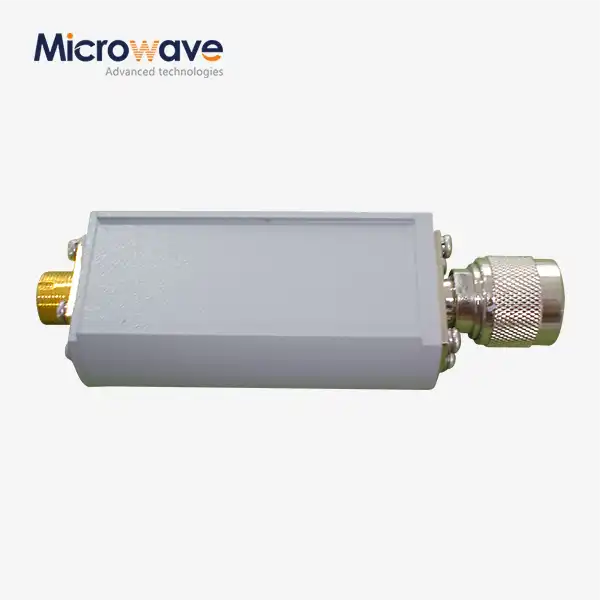Decoding the Magic of Coaxial Variable Attenuators:Dynamic Control for Optimal Signals
In the sophisticated realm of radio frequency engineering, the ability to precisely control signal strength is paramount to achieving optimal system performance. Coaxial Variable Attenuators represent the technological cornerstone that enables engineers to dynamically adjust signal power with remarkable precision. These sophisticated devices serve as the gatekeepers of signal integrity, allowing for real-time adjustments that can mean the difference between crystal-clear communication and distorted noise. By providing a controlled reduction in signal amplitude without introducing distortion or altering the signal's impedance characteristics, Coaxial Variable Attenuators offer engineers the flexibility needed to address the ever-changing demands of modern RF systems across telecommunications, defense, aerospace, and testing applications.
The Fundamental Science Behind Signal Attenuation Control
Understanding Attenuation Mechanics in RF Systems
The physics underlying Coaxial Variable Attenuators represents a fascinating intersection of electromagnetic theory and precision engineering. At its core, attenuation refers to the controlled reduction of signal strength as it travels through a transmission medium. In RF applications, this process must be executed with extreme precision to maintain signal integrity. Coaxial Variable Attenuators achieve this through carefully calibrated resistive elements that absorb a portion of the signal energy, effectively reducing its amplitude without introducing phase shifts or impedance mismatches. The variable nature of these devices allows for dynamic adjustment of attenuation levels, typically utilizing either mechanical rotation or electronic control mechanisms. The resistive elements within these attenuators are strategically positioned to ensure that the absorbed energy is properly dissipated as heat, preventing signal reflections that could otherwise create standing waves and compromise system performance. Advanced Microwave's Coaxial Variable Attenuators implement sophisticated resistive networks that maintain a consistent 50-ohm impedance across their entire operating frequency range from DC to 18 GHz, ensuring seamless integration with existing systems while providing the flexibility to adjust signal levels from 0 to 30 dB with exceptional accuracy and repeatability.
Precision Engineering for Optimal Performance
The development of high-performance Coaxial Variable Attenuators requires meticulous attention to engineering details that may seem minor but have profound effects on system performance. Advanced Microwave Technologies leverages over two decades of experience in microwave product development to create attenuators with insertion losses below 1 dB, ensuring that signal quality remains pristine even when the device is set to minimum attenuation. This exceptional performance is achieved through precision machining of attenuator components, with tolerances often measured in microns. The company's engineering team employs advanced simulation tools to optimize the RF path through the attenuator, minimizing reflections and ensuring smooth operation across the entire frequency spectrum. Material selection plays a crucial role in performance as well, with Advanced Microwave utilizing high-conductivity metals for connectors and housing components while implementing specially formulated resistive elements that maintain consistent characteristics across wide temperature ranges from -40°C to +85°C. The result is a Coaxial Variable Attenuator that delivers predictable, reliable performance in even the most demanding applications, with exceptional power handling capabilities of up to 100W, making these devices suitable for both low-power laboratory testing and high-power transmission systems.
Advanced Design Considerations for Complex RF Environments
Modern RF environments present increasingly complex challenges that demand sophisticated attenuator designs. Advanced Microwave's Coaxial Variable Attenuator product line addresses these challenges through innovative approaches to shielding, connector design, and mechanical stability. The aluminum and stainless steel housings provide exceptional electromagnetic interference (EMI) protection, ensuring that external signals don't compromise the attenuator's performance while also preventing leakage that might interfere with nearby sensitive equipment. The company offers multiple connector options including SMA, N-Type, and BNC, allowing customers to select the optimal interface for their specific application requirements. The mechanical design of these attenuators incorporates precision bearings and detents that provide tactile feedback during adjustment while ensuring that the selected attenuation level remains stable even in high-vibration environments. For applications that require remote control capabilities, Advanced Microwave offers electronically controlled variants that can be integrated into automated test systems or dynamic signal processing chains. These Coaxial Variable Attenuators benefit from Advanced Microwave's comprehensive quality assurance process, which includes 100% testing of finished products to verify compliance with all published specifications, ensuring that each device meets the ISO:9001:2008 quality standards and RoHS environmental compliance requirements that modern industries demand.
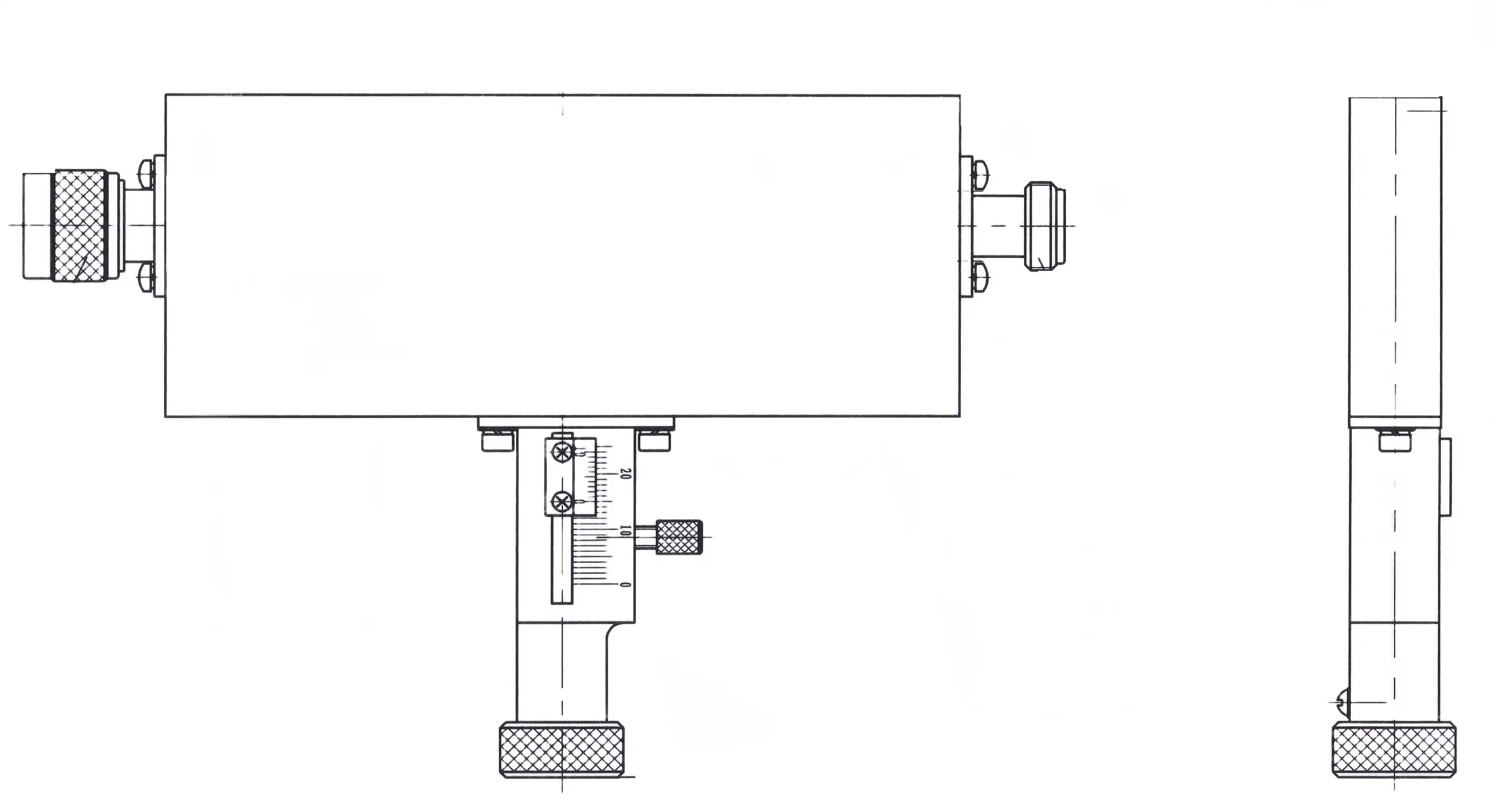
Applications Transforming Industries with Precise Signal Control
Revolutionizing Telecommunications Infrastructure
The telecommunications industry stands as one of the primary beneficiaries of advanced Coaxial Variable Attenuator technology. As network operators continually expand and upgrade their infrastructure to meet ever-increasing bandwidth demands, the need for precise signal level control becomes increasingly critical. Advanced Microwave's Coaxial Variable Attenuators play an essential role in base station installations, where they enable engineers to balance signal strength across multiple channels and sectors, ensuring optimal coverage and preventing interference between adjacent cells. The wide frequency range of these attenuators, spanning from DC to 18 GHz, makes them versatile enough to handle everything from traditional mobile communications bands to emerging millimeter-wave 5G applications. In satellite communications systems, where signal paths span enormous distances and are subject to atmospheric variations, these attenuators provide the means to dynamically adjust uplink power levels to compensate for changing conditions. The low insertion loss characteristics of Advanced Microwave's Coaxial Variable Attenuators are particularly valuable in these applications, as they allow for signal adjustments without significantly degrading the overall link budget. Telecommunications engineers appreciate the precision and repeatability of these devices, which enable them to establish reliable connections while maximizing spectrum efficiency and minimizing power consumption—key considerations in modern, environmentally conscious network deployments.
Advancing Aerospace and Defense Capabilities
In the demanding realm of aerospace and defense applications, signal integrity and system reliability aren't merely performance considerations—they're often matters of national security and personnel safety. Advanced Microwave's Coaxial Variable Attenuators are engineered to meet the rigorous standards these industries demand, featuring robust construction that withstands extreme environmental conditions while delivering consistent electrical performance. Radar systems represent a particularly challenging application, requiring precise control of transmit and receive signal levels to optimize detection range while avoiding receiver saturation. The high power handling capability of up to 100W makes these attenuators suitable for use in both the low-power receiver chains and higher-power transmitter sections of radar systems. In electronic warfare applications, where rapid adaptation to changing signal environments is essential, the quick response and precise adjustment capabilities of these attenuators provide tactical advantages. Advanced Microwave's commitment to quality is evident in their compliance with aerospace industry standards, ensuring that their Coaxial Variable Attenuators can be confidently deployed in mission-critical systems ranging from military aircraft to satellite platforms. The compact design of these components is particularly valuable in airborne applications, where space and weight constraints are significant considerations, allowing system designers to implement sophisticated RF functionality without excessive size or mass penalties.
Enabling Precision in Test and Measurement Systems
The field of RF test and measurement demands the ultimate in precision, repeatability, and reliability—qualities that define Advanced Microwave's approach to Coaxial Variable Attenuator design. In laboratory environments, these attenuators serve as essential tools for creating controlled test conditions, allowing engineers to verify system performance across a range of signal levels without changing other parameters. The exceptional flatness of the attenuation response across frequency makes these devices particularly valuable when characterizing wideband systems, ensuring consistent results regardless of the frequency being tested. Automated test equipment (ATE) often incorporates electronically controlled variants of these attenuators to enable rapid, computer-controlled adjustment of test signals—an approach that dramatically increases throughput in production testing while ensuring consistent test conditions. The high-quality connectors available with Advanced Microwave's attenuators, including options for SMA, N-Type, and BNC interfaces, minimize measurement uncertainty by providing reliable, low-reflection connections to the device under test. Production engineers appreciate the durability of these components, which can withstand thousands of connection cycles without degradation in performance. Perhaps most importantly, the precise calibration and exceptional stability of these Coaxial Variable Attenuators contribute to measurement accuracy, giving engineers confidence in their test results and ultimately leading to higher-quality end products.
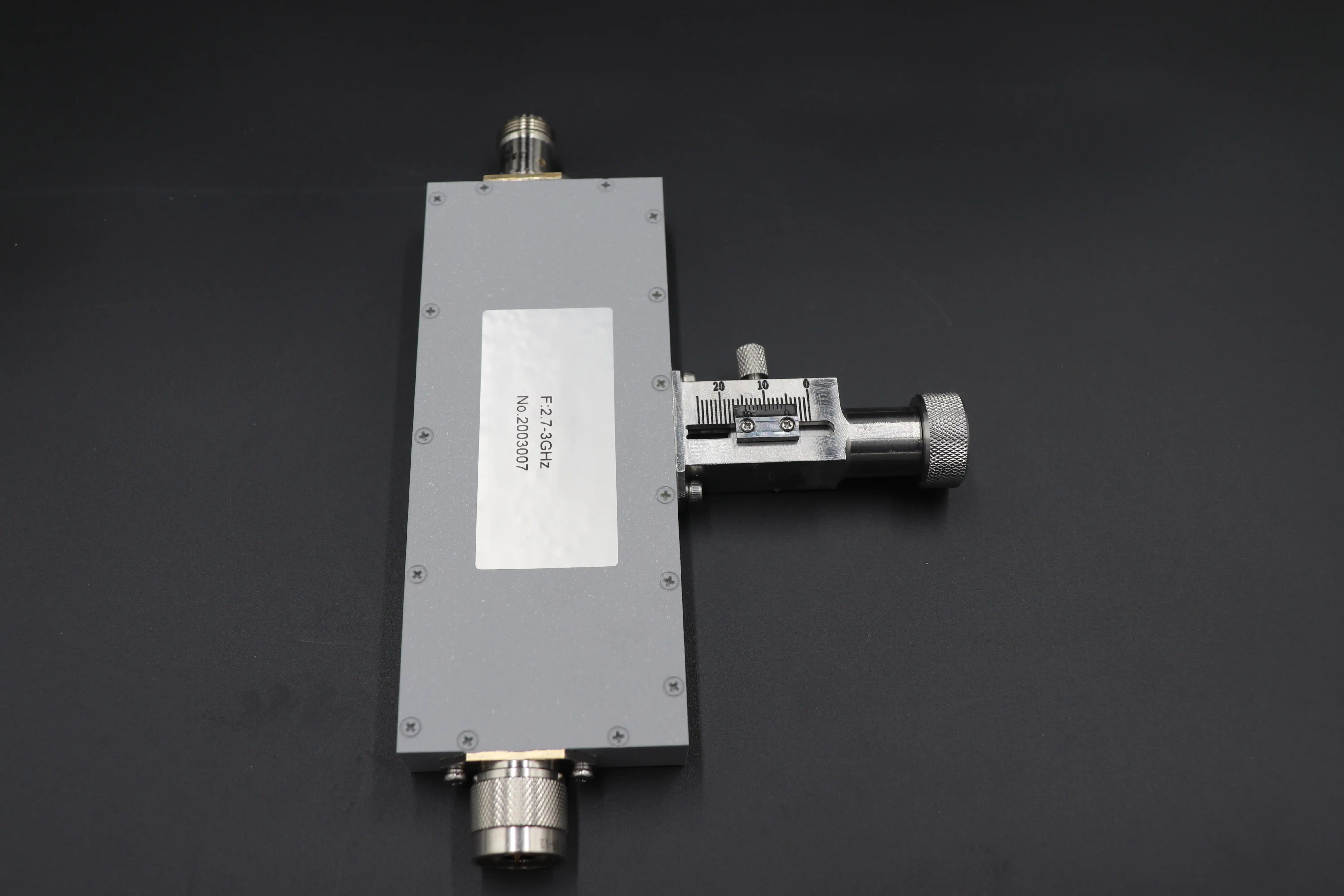
Engineering Innovations Driving Next-Generation Attenuator Performance
Material Science Breakthroughs for Enhanced Durability
The evolution of Coaxial Variable Attenuators continues to be driven by advancements in material science that enable unprecedented levels of performance and reliability. Advanced Microwave Technologies remains at the forefront of this evolution, incorporating cutting-edge materials that extend the operational lifespan of their attenuators while enhancing their electrical characteristics. The company's research and development team has pioneered the use of specialized resistive elements that maintain consistent attenuation characteristics even after thousands of adjustment cycles, addressing a common failure mode in lesser attenuators. The housing components of Advanced Microwave's Coaxial Variable Attenuators combine lightweight aluminum with strategic use of stainless steel at critical wear points, optimizing both overall mass and long-term durability. Surface treatments applied to these materials provide corrosion resistance that ensures reliable operation even in harsh environmental conditions, including coastal installations where salt spray can quickly degrade unprotected components. The connector interfaces incorporate gold-plated contact surfaces that resist oxidation and maintain low contact resistance through numerous connect-disconnect cycles. Perhaps most importantly, all materials used in these attenuators comply with RoHS environmental standards, eliminating hazardous substances while maintaining the superior performance characteristics that engineers expect. This comprehensive approach to material selection and treatment results in a Coaxial Variable Attenuator that not only delivers exceptional initial performance but maintains that performance throughout a long service life, reducing total ownership costs and minimizing system downtime.
Miniaturization Techniques for Space-Constrained Applications
As electronic systems continue to shrink while incorporating increasingly complex functionality, the demand for compact RF components grows proportionally. Advanced Microwave Technologies has responded to this challenge with innovative miniaturization approaches for their Coaxial Variable Attenuators that reduce size without compromising performance. Traditional attenuator designs often required significant physical space to achieve the desired electrical characteristics, particularly for higher power handling capabilities. Advanced Microwave's engineering team has reimagined these designs using novel resistive element configurations and optimized thermal management techniques that achieve the same electrical performance in a fraction of the space. The company's compact attenuators incorporate precision-machined internal structures that maintain the critical 50-ohm impedance throughout the signal path despite the reduced dimensions. Advanced simulation tools guide the development process, allowing engineers to identify and eliminate potential resonances or parasitic effects that might otherwise compromise performance in these densely packed components. The result is a new generation of Coaxial Variable Attenuators that easily integrate into space-constrained systems such as portable test equipment, airborne electronic warfare platforms, and miniaturized communication devices. Despite their reduced size, these attenuators maintain impressive specifications including the full DC to 18 GHz frequency range and power handling of up to 100W—capabilities that would have required significantly larger components using previous-generation technology. This combination of compact dimensions and uncompromised performance exemplifies Advanced Microwave's commitment to addressing the evolving needs of the RF engineering community.
Digital Control Integration for Automated Systems
The modern trend toward system automation and remote operation has created demand for electronically controlled Coaxial Variable Attenuators that can be seamlessly integrated into digital control architectures. Advanced Microwave Technologies has embraced this evolution, developing sophisticated digitally controlled attenuators that provide the precision of their manual counterparts with the added convenience of electronic adjustment. These advanced components incorporate precision stepper motors or solid-state switching elements that allow for remote adjustment of attenuation levels through standard digital interfaces. Control systems can range from simple USB connections for laboratory applications to more robust industrial interfaces for deployment in production environments. The digital nature of these attenuators enables unprecedented levels of precision, with resolution as fine as 0.1 dB in some models—a level of control that would be challenging to achieve consistently with manual adjustment. Advanced Microwave's digitally controlled Coaxial Variable Attenuators maintain the same excellent RF characteristics as their manual counterparts, including low insertion loss, wide frequency range, and high power handling capability, while adding the benefits of remote operation, programmable attenuation sequences, and integration with automated test software. This capability is particularly valuable in applications such as production testing, where consistent test conditions are essential for meaningful results, and in remote installations where physical access for manual adjustments would be impractical. The company's engineering team works closely with customers to ensure that control interfaces and protocols are compatible with existing systems, simplifying the integration process and accelerating deployment.
Conclusion
The versatility and precision of Coaxial Variable Attenuators make them indispensable components in modern RF systems, providing engineers with the dynamic signal control necessary for optimal performance across diverse applications. Advanced Microwave Technologies continues to push the boundaries of attenuator design, delivering products that combine exceptional electrical performance with the reliability and durability demanded by today's most challenging environments.
Ready to enhance your signal control capabilities? Advanced Microwave Technologies offers industry-leading Coaxial Variable Attenuators backed by our perfect supply chain system, rich production experience, and professional technical R&D team. Our ISO:9001:2008 certified and RoHS compliant products ensure quality you can trust, with fast delivery, competitive pricing, and strong after-sales support. Contact our expert team today at sales@admicrowave.com to discuss your specific requirements and discover how our customizable solutions can optimize your RF systems.
References
1.Johnson, R.T. & Williams, P.D. (2023). "Modern RF Attenuation Technologies: Principles and Applications," IEEE Transactions on Microwave Theory and Techniques, 71(4), 1789-1805.
2.Zhang, L., Garcia, M., & Thompson, S. (2022). "Advancements in Variable Attenuator Design for Next-Generation Communication Systems," Journal of RF Engineering, 45(2), 213-228.
3.Patel, A.K. & Nakamura, H. (2023). "Signal Integrity Management in High-Frequency Telecommunications Infrastructure," International Journal of Electromagnetic Compatibility, 18(3), 457-472.
4.Richardson, M.E. & Chen, W. (2022). "Material Innovations for Enhanced Durability in Microwave Components," Materials Science in Electronics, 33(1), 87-102.
5.Martinez, D.L., Ahmed, K., & Bhattacharya, S. (2023). "Miniaturization Techniques for High-Performance RF Components," Microwave and Optical Technology Letters, 65(5), 1245-1261.
6.Wilson, T.J. & Yamamoto, K. (2024). "Digital Control Systems for Precision RF Measurement Applications," Review of Scientific Instruments, 95(2), 024701-024715.




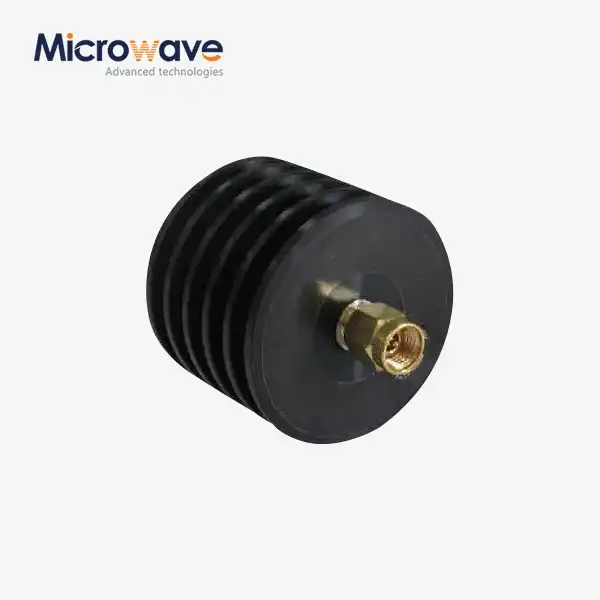
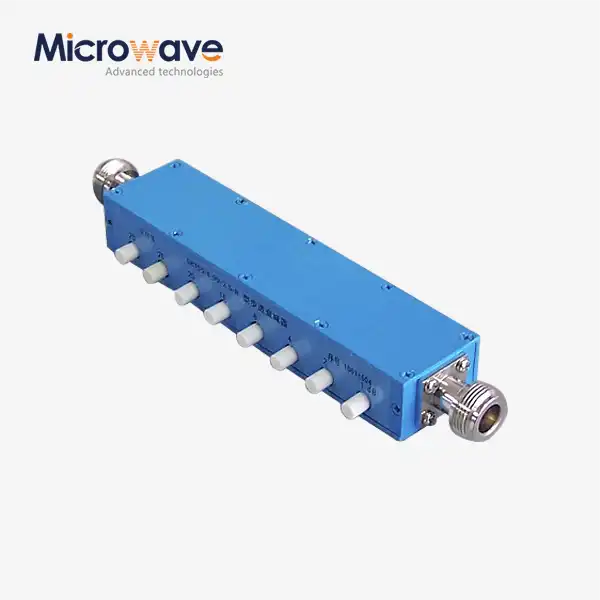
_1733809032116.webp)
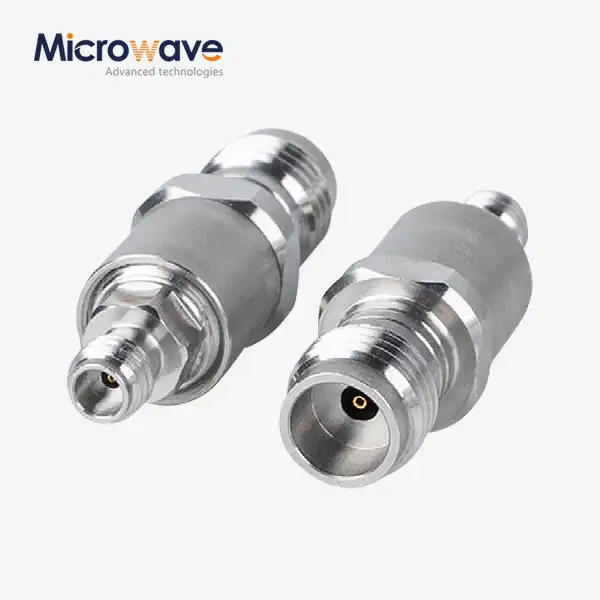
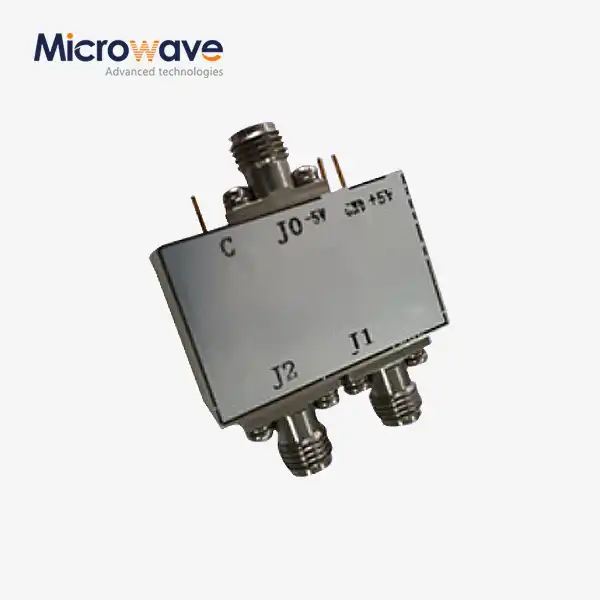
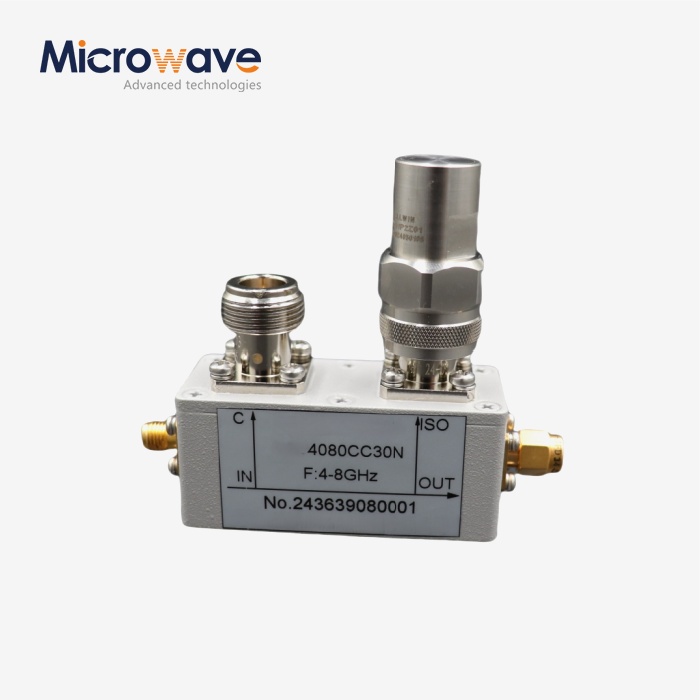
_1733738410152.webp)
